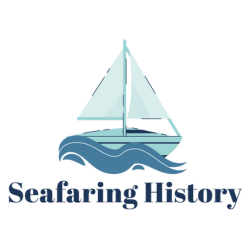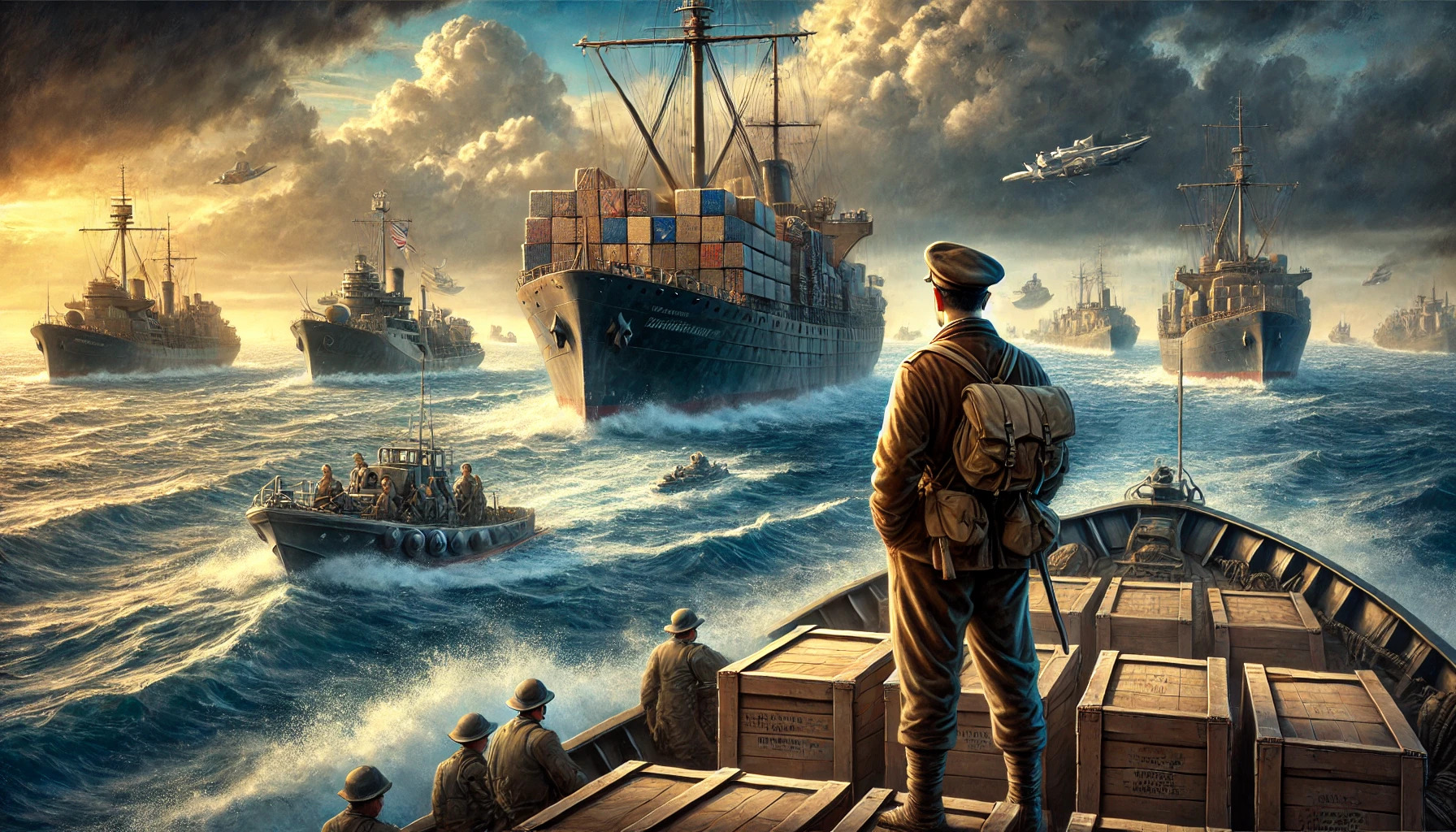Merchant mariners have played a crucial role in wartime efforts, often overlooked in discussions about military history. During conflicts, these brave men and women provide vital logistics support, transporting goods and supplies needed by fighting forces around the world. Their work is essential to maintaining military operations and ensuring that troops have the resources they need to succeed.
Throughout history, from World War II to more recent conflicts, merchant mariners have shown incredible dedication and courage. They face significant dangers at sea, including enemy attacks and harsh weather conditions. By navigating these challenges, they ensure that supplies reach those on the front lines, making their contributions invaluable to the success of military campaigns.
Understanding the significant sacrifices made by merchant mariners helps to appreciate their vital role in wartime. Their efforts not only sustain armies but also connect nations and support the broader goals of peace and security. The story of these maritime heroes deserves to be recognized and celebrated.
Historical Importance of Merchant Mariners
Merchant mariners have played a vital role in supporting military efforts throughout history. Their contributions were significant during major conflicts, particularly in World War I and World War II, while also continuing to be important in the Cold War period.
World War I Contributions
During World War I, merchant mariners were essential in transporting troops and supplies. The U.S. Merchant Marine expanded rapidly, moving millions of tons of cargo. This included arms, food, and medical supplies destined for the front lines.
Mariners also faced substantial danger from enemy submarines. Many ships were sunk, and the loss of lives among these brave men and women was notable. Their determination helped support the Allied forces in achieving victory.
Critical Role during World War II
World War II highlighted the crucial support of merchant mariners. They transported cargo and troops across the globe, often under threat from enemy attacks. Around 250,000 merchant mariners served during this time.
One notable event was the evacuation at Hungnam, where the Merchant Marine and Navy evacuated over 100,000 United Nations troops. They moved thousands of tons of crucial supplies in a short time, showcasing their importance in wartime efforts.
Merchant mariners also faced direct attacks from submarines and planes. Losses were high, with approximately 9,300 mariners killed. Their sacrifices were a testament to their bravery and dedication.
Cold War Era Operations
In the Cold War era, merchant mariners continued to support military operations. They played a key role in transporting supplies and equipment for military missions around the world. This included operations during the Korean and Vietnam Wars.
Their work often went unnoticed, but it was crucial for maintaining the military’s logistical needs. Merchant ships facilitated the movement of military materials, ensuring that forces were well supplied.
The ongoing commitment of merchant mariners during this period reinforced their historical importance. They remained a reliable and steadfast part of U.S. military operations, proving their lasting legacy in the face of global challenges.
Merchant Marine Academy and Training
The United States Merchant Marine Academy plays a vital role in training future merchant mariners. It provides structured programs that prepare students for service in both peacetime and wartime. This section covers its establishment, training programs, and commissioning into the armed services.
Establishment of the United States Merchant Marine Academy
The United States Merchant Marine Academy (USMMA) was established in 1943, during World War II. The academy was created to ensure the nation had a trained workforce ready to support military and commercial shipping needs.
It is located in Kings Point, New York. The USMMA aims to educate highly skilled, licensed mariners who can operate various types of vessels. This strategic establishment supported the Allied efforts by preparing skilled personnel for maritime duties.
Training Programs and Readiness
Training at the USMMA includes a mix of classroom learning and hands-on experience. Students learn navigation, engineering, and maritime law, among other critical subjects. They also participate in sea training, where they operate commercial ships.
This practical training ensures that graduates are ready for real-world challenges. They gain experience in teamwork, leadership, and problem-solving, which are essential for success in maritime operations.
Regular drills and emergency response training further enhance readiness. This comprehensive approach helps students become well-rounded professionals.
Commissioning into Armed Services
Graduates of the USMMA have the opportunity to commission into the armed services. Completing the academy’s program means they can serve as officers in various branches of the military. This path allows them to combine their maritime skills with military service.
Students have the choice to fulfill their service obligation through active duty or reserve roles. This connection between the academy and the military is significant in times of national emergency.
The USMMA’s focus on service helps ensure that the merchant marine remains a vital part of national defense and maritime operations.
Legal Framework and International Laws
Merchant mariners operate under specific legal frameworks and international laws that guide their activities during wartime. Understanding these rules is essential for their safety and operational effectiveness.
Maritime Law and Conventions
Maritime law consists of various international treaties and conventions that regulate activities at sea. The Hague Conventions of 1907 play a vital role, setting rules for naval warfare and protecting maritime rights. Other important treaties, like the Geneva Conventions, emphasize humanitarian concerns, applying to merchant vessels during conflicts.
Additionally, the Convention on the Law of the Sea (LOSC) establishes guidelines for navigation and resource management. This framework ensures that merchant mariners can operate legally and safely, even in hostile environments. Denial of access or harm to civilian vessels is a serious violation of these treaties.
Role under International Maritime Organization
The International Maritime Organization (IMO) is crucial in establishing regulations for merchant shipping. It promotes safe, secure, and efficient shipping practices worldwide. The IMO also guides nations on best practices during wartime, ensuring the protection of merchant fleets.
Through various conventions and safety codes, the IMO enhances mariner training and ship design, which is vital for wartime readiness. The Global Maritime Distress and Safety System (GMDSS) exemplifies their commitment to communication, helping ensure that merchant mariners receive necessary support during emergencies.
Merchant mariners rely on these legal frameworks to navigate complex wartime challenges while ensuring compliance with international laws.
Challenges and Modern Responsibilities
Merchant mariners face various challenges in today’s world while taking on important responsibilities. Their roles have evolved significantly, which has added new dimensions to their tasks. These changes require adaptability to ensure safe and effective operations.
Piracy and Maritime Security
Piracy remains a serious concern for merchant mariners globally. Shipping routes, especially near strategic points like the Gulf of Aden and the Strait of Malacca, are frequent targets for pirates. Merchant mariners must be trained to handle potential attacks, often involving evasive maneuvers or returning fire if necessary.
In response to these threats, many shipping companies implement advanced security measures. This includes hiring armed security personnel and adopting technologies like sonar and drone surveillance. These efforts aim to protect cargo, ensure the safety of crew members, and minimize disruptions to maritime trade.
Advancements in Maritime Technology
The shipping industry is experiencing rapid advancements in technology. Automated systems, such as Electronic Chart Display and Information Systems (ECDIS), help in navigation and route planning. Merchant mariners must stay updated on these technologies to enhance efficiency and safety.
Additionally, real-time data communication allows for better coordination between vessels and shore services. This aids in faster decision-making during emergencies or changes in shipping conditions. Embracing new technology is crucial for maritime operations to remain competitive in a global market.
Humanitarian Missions and Peacekeeping
Merchant mariners often engage in humanitarian missions and peacekeeping efforts. They deliver essential supplies during natural disasters, such as food, water, and medical aid. This requires swift logistics and coordination with various organizations and governments.
Additionally, they may assist in peacekeeping missions by transporting troops and equipment. This role underlines the importance of merchant mariners in global stability. They not only support military efforts but also contribute to humanitarian relief, showcasing the versatile responsibilities they hold.

